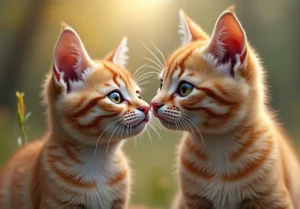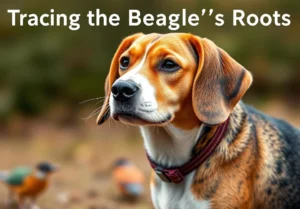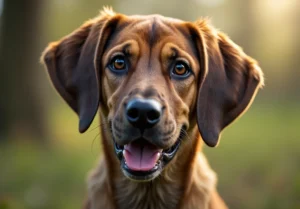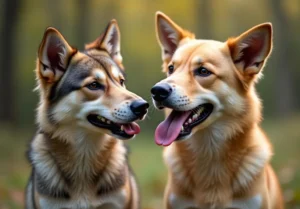Cats have a natural instinct to hunt, and sometimes, their prey of choice may be guinea pigs. But why exactly does a cat hunt guinea pigs? Let’s explore the reasons behind this behavior.
Evolutionary Instincts
Cats’ hunting instincts are deeply rooted in their DNA, dating back to their ancestors who relied on hunting for survival. Over generations, cats have honed their skills to become efficient predators, making them natural hunters. When a cat sets its sights on a guinea pig, it’s not just about a meal – it’s tapping into an ancient instinct that drives them to chase and capture prey.
One interesting aspect of cats’ hunting instincts is their preference for smaller prey, such as guinea pigs. Cats are wired to go after creatures that they perceive as manageable and fitting into their natural prey size range. This is why guinea pigs, with their small size and quick movements, make an enticing target for a cat on the prowl.
Moreover, cats’ keen sense of hearing and sight make them excellent hunters, allowing them to detect the slightest movements and track their prey with precision. This combination of innate abilities and predatory drive makes it almost inevitable for a cat to hunt guinea pigs when given the chance.
Opportunity for Play
Hunting guinea pigs can also be a form of play for cats. Just like how humans engage in games for fun, cats see hunting as a thrilling and stimulating activity. Chasing after a guinea pig triggers their natural instincts to stalk, pounce, and capture prey, providing mental and physical stimulation.
For cats, the process of hunting is not solely about the end goal of catching the guinea pig; it’s about the thrill of the chase and the satisfaction of a successful hunt. This play behavior allows cats to express their instincts in a controlled environment, keeping their hunting skills sharp and providing a source of entertainment.
In addition to serving as a playful activity, hunting guinea pigs can also be a way for cats to release pent-up energy and alleviate boredom. Providing interactive toys and play sessions can help fulfill their hunting instincts in a safe and engaging manner, reducing the likelihood of them targeting small pets like guinea pigs.
Lack of Awareness
Cats may not fully comprehend the implications of hunting guinea pigs. To them, these small pets might resemble moving toys or prey, triggering their natural hunting instincts. Without proper understanding or consideration, cats may see guinea pigs as fair game rather than recognizing the potential harm they can cause.
Behavioral Issues
In some cases, cats might exhibit hunting behavior towards guinea pigs due to underlying behavioral issues. Boredom, lack of mental stimulation, or stress can drive cats to seek excitement through hunting activities. Providing adequate enrichment, interactive toys, and a stimulating environment can help address these behavioral issues and reduce the likelihood of hunting behavior towards guinea pigs.
Additional Insight: Cats are obligate carnivores, meaning hunting is a natural behavior for them to obtain nutrients. While domestic cats are fed balanced diets, their instinctual drive to hunt may still persist, leading them to target small animals like guinea pigs. It’s essential to recognize and manage this instinct to ensure the safety of all pets in a multi-pet household.
Remember, understanding the reasons behind your cat’s behavior is key to addressing and modifying it effectively. By addressing issues such as lack of awareness and behavioral triggers, you can help create a harmonious environment where all pets can coexist peacefully.
Prey Drive
Cats have an innate prey drive that compels them to hunt small animals like guinea pigs. This instinct stems from their wild ancestry, where hunting was essential for survival. Even though domestic cats are well-fed, they still possess this natural urge to chase and capture prey. It’s important to understand that when a cat hunts a guinea pig, it’s not out of malice but simply following their instincts.
To help manage a cat’s prey drive towards guinea pigs, consider providing plenty of mental and physical stimulation through interactive play sessions using toys. This can help satisfy their hunting instincts in a more appropriate manner. Additionally, feeding puzzles can simulate a hunting experience and provide a positive outlet for their energy.
Training and Socialization
Proper training and socialization play a crucial role in preventing cats from hunting guinea pigs. Early exposure to different stimuli and positive reinforcement can help shape their behavior towards small animals. Encourage positive interactions between your cat and guinea pig, under supervised conditions, to foster a sense of companionship rather than prey.
Redirecting a cat’s hunting instincts can also involve creating a safe environment for your guinea pig. Ensure they have hiding spots and elevated areas where they can feel secure from potential hunting behavior. Consider enrichment activities like puzzle feeders and climbing towers to keep your cat engaged and less focused on hunting.
- Supervise Interactions: Always monitor interactions between your cat and guinea pig closely to prevent any hunting attempts.
- Provide Distractions: Offer engaging toys and activities to redirect your cat’s focus away from hunting behavior.
- Positive Reinforcement: Reward desirable behavior with treats or praise to reinforce gentler interactions with your guinea pig.
- Consult a Professional: If your cat’s hunting behavior persists despite efforts, seek advice from a certified animal behaviorist for further guidance.PetMD provides valuable insights on cat behavior and training that can help address hunting instincts in cats. Check out their article on feline predatory behavior for expert tips and advice.
Supervision and Separation
Introducing cats to guinea pigs can be a risky endeavor. Cats have a natural hunting instinct, which can put your guinea pigs in danger. Always make sure to supervise their interactions closely, especially during the initial introductions. It’s crucial to provide separate living spaces for your cat and guinea pigs to prevent any potential harm. This will help ensure the safety and well-being of both your feline friend and your adorable guinea pigs.
Tips for Safe Introductions:
- Gradual Introduction: Allow your cat and guinea pigs to get used to each other’s scents before any direct contact.
- Secure Enclosures: Keep your guinea pigs in a secure cage that your cat cannot access.
- Supervised Interaction: Monitor their interactions closely and be ready to intervene if necessary.
- Separate Playtimes: Give your guinea pigs playtime in a safe, cat-free environment.
Remember, the safety of your pets should always come first. By following these tips and providing appropriate supervision and separation, you can help prevent any potential hunting behavior from your cat towards your guinea pigs.
Interesting Fact: Cats Are Efficient Hunters
Cats are natural-born hunters with incredible predatory instincts. Their keen senses of sight, hearing, and smell make them excellent hunters, capable of stalking and capturing prey with precision. Did you know that a cat’s whiskers are highly sensitive and help them navigate in the dark, making them even more efficient hunters? This incredible adaptation allows cats to excel in low-light conditions, a perfect setting for hunting. Their agility, speed, and stealth also contribute to their efficiency as predators.
By understanding cats’ innate hunting abilities, you can appreciate why they are drawn to hunting behaviors, including towards small animals like guinea pigs. It’s essential to be aware of your cat’s natural instincts and provide appropriate supervision and enrichment to satisfy their hunting drive without endangering other pets in your household.
Alex, a passionate animal lover, has experience in training and understanding animal behavior. As a proud pet parent to two dogs and three cats, he founded AnimalReport.net to share insights from animal experts and expand his knowledge of the animal kingdom.




